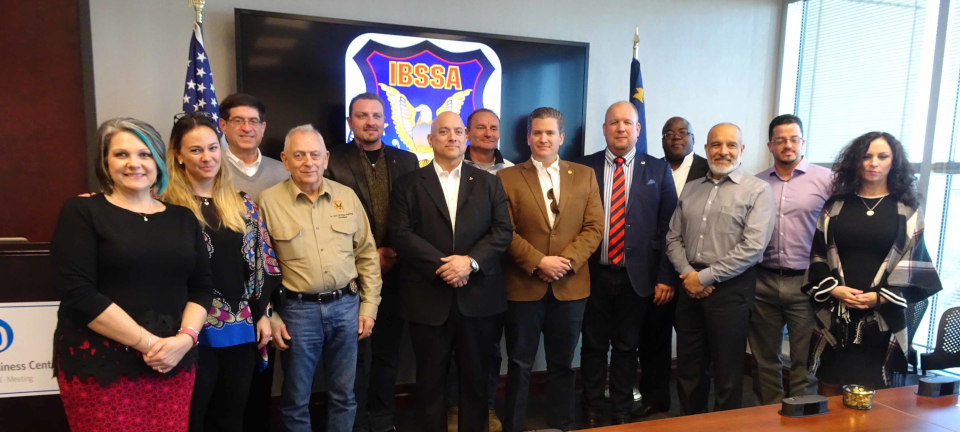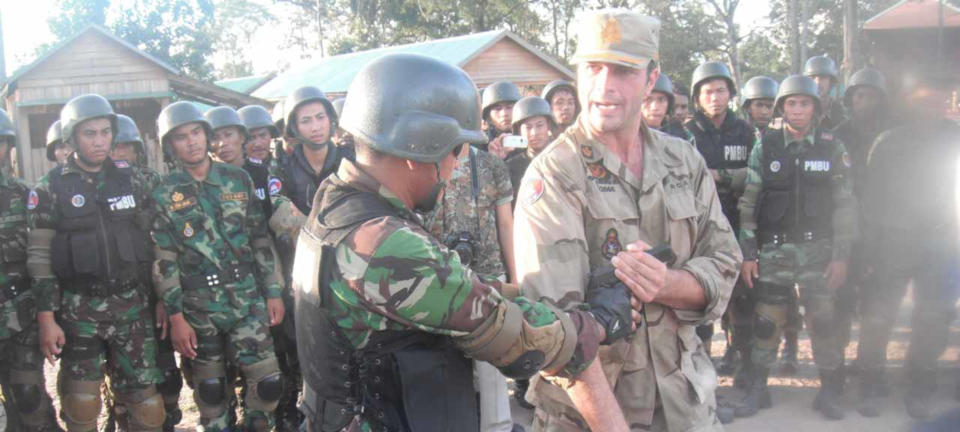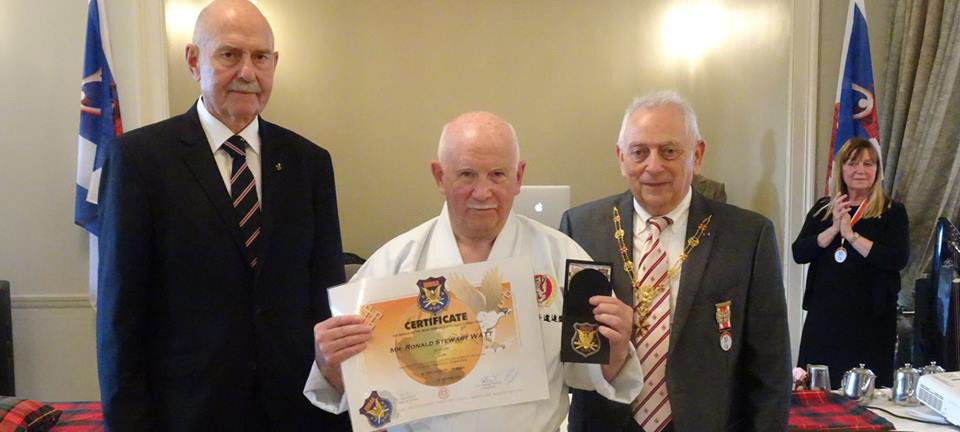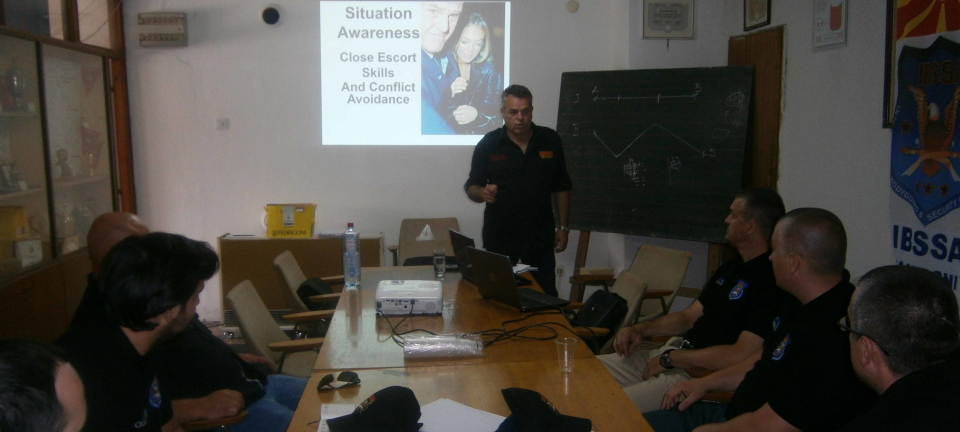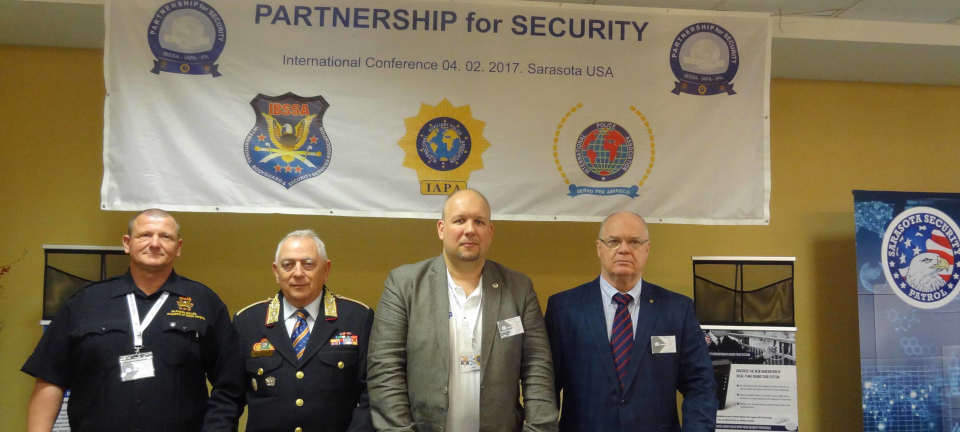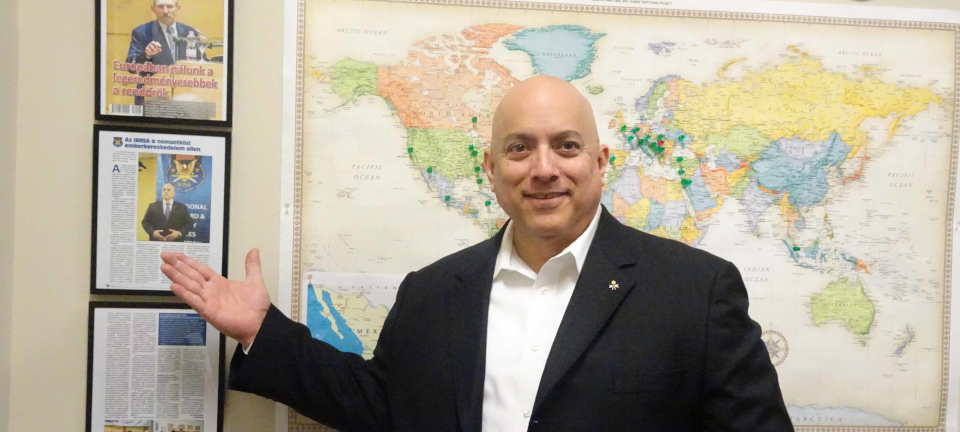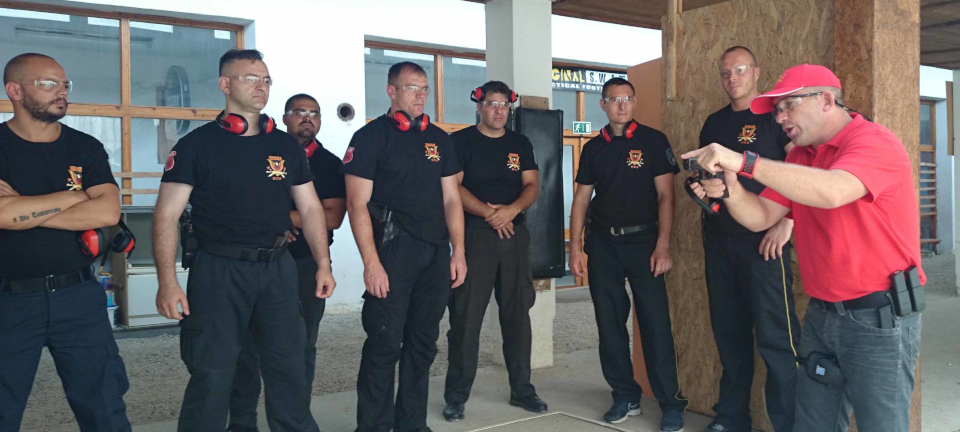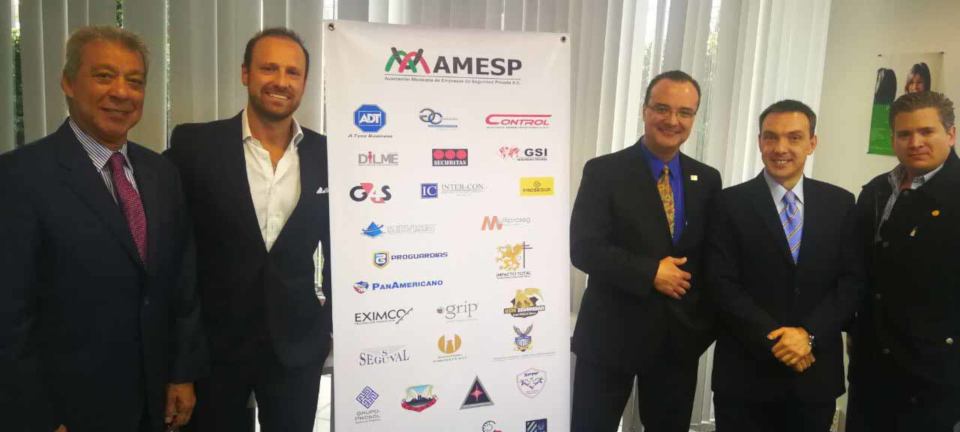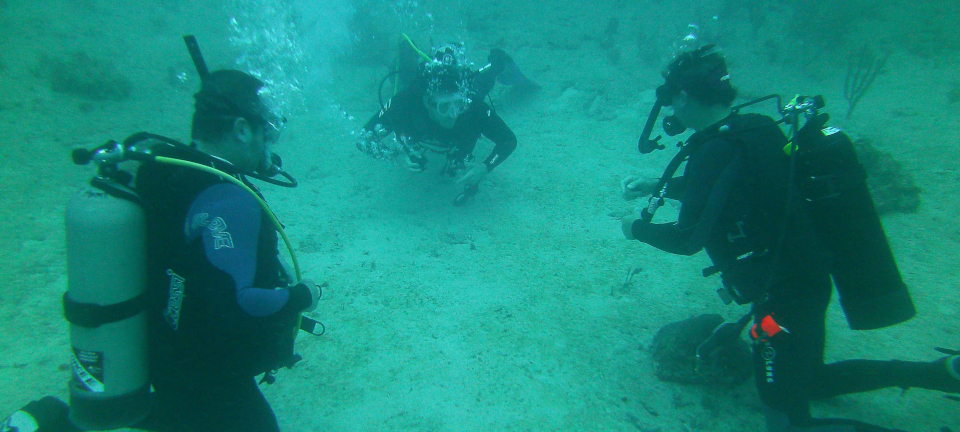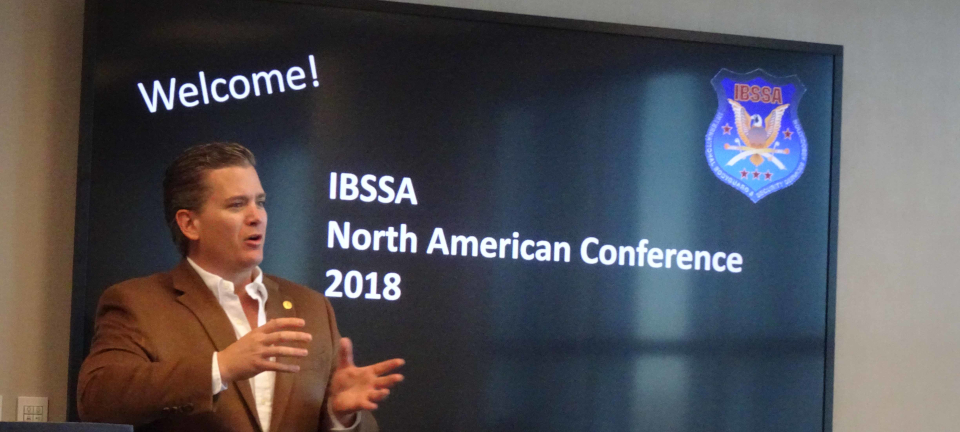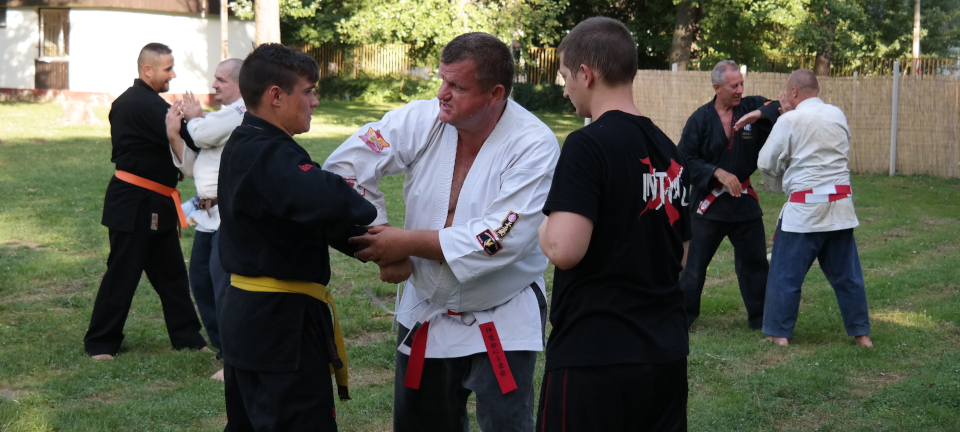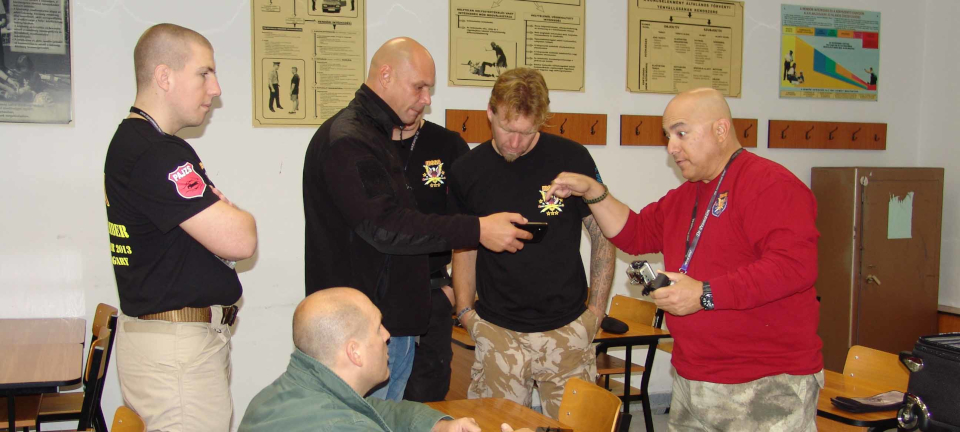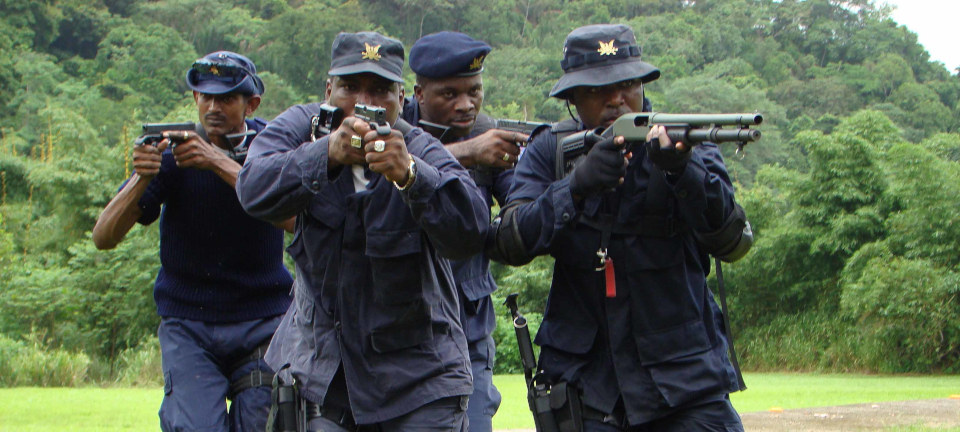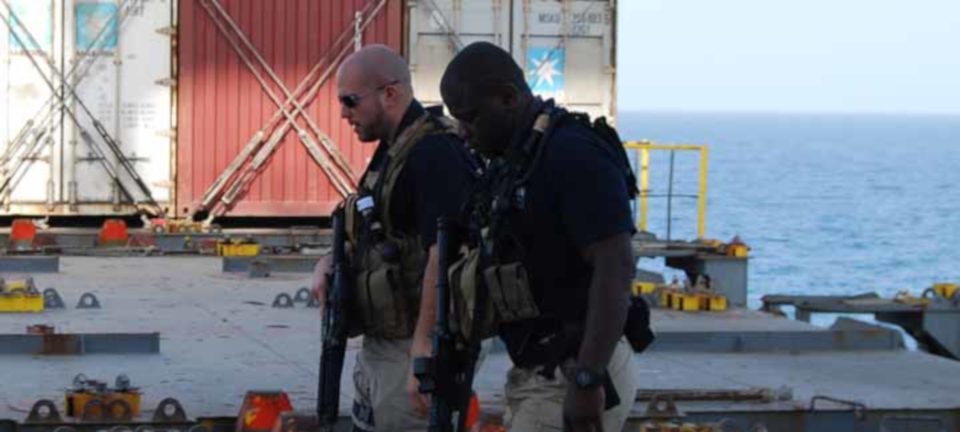
Warrior of Two Worlds - Interview with Dr. Rony Kluger - General Secretary of IBSSA
An interview with Krav Maga & karate instructor Dr. Rony Kluger – General Secretary of IBSSA
 Dr. Rony Kluger is a curious find in the martial arts world. He is both a traditional martial artist, deeply involved in Okinawan karatedo and kobudo, yet is also among the world’s top instructors of Krav Maga, the no-nonsense self-defence system designed for soldiers and anti-terrorist police. The Head of coaching at Israel’s famous Wingate Institute for over twenty years, recently visited his affiliates at VT-1 gym in Sydney, and gave us an interesting insight into how he makes these two warrior ways, the traditional and modern, meet so successfully.
Dr. Rony Kluger is a curious find in the martial arts world. He is both a traditional martial artist, deeply involved in Okinawan karatedo and kobudo, yet is also among the world’s top instructors of Krav Maga, the no-nonsense self-defence system designed for soldiers and anti-terrorist police. The Head of coaching at Israel’s famous Wingate Institute for over twenty years, recently visited his affiliates at VT-1 gym in Sydney, and gave us an interesting insight into how he makes these two warrior ways, the traditional and modern, meet so successfully.
Dr. Kluger, could you tell us about your background? I started my martial art training at the age of 12 in the art of judo, and trained and fought for over 12 years. During 1970 I started my training in karatedo and kobudo [Okinawan weaponry] and never stopped. In the '70s during my military service, I served as Krav Maga and PT [physical training] instructor and later in the reserve years of my training, I instructed various special units in Krav Maga. During the 46 years I never stopped learning, teaching and researching the fighting systems, especially Okinawan Goju-ryu karate-do and kobudo. I learned jujutsu, iaido and tai chi to expand my understanding. I feel that the training of the educational teams for martial arts are a most important key factor for the future of all interested in this unique discipline. Since 1975, I've been the Headmaster of Karate Do International Renmei, an international school of classical Okinawan Gojuryu Karatedo and Kobudo, under the umbrella of Sho Honbu Jundokan, Okinawa, and the historical Dai Nippon Butoku Kai [Japan]. At 1994 I started the activities of the International Budo Academy, which is a unique international educational institute of classical Budo. In 1992 I started my own Israeli system of military self-defence, Organization. Today we are serving some governmental and private sectors worldwide with in the famous International Bodyguard and Security Services Association.
How is your organization different from other Krav Maga organizations?
I don't feel [a need] to deal with others, but I respect them all. Naturally, like in all fields of martial ways, there are a lot of organizations, instructors and interpretations. Our organization, naturally, brings out my lifelong personal, first-hand experiences within this unique profession. The build-up of the organization, and the way we teach and train, are a clear outcome of my real field as well as academic experiences as a professional Teacher and Educator. My main expertise is with the military and security professionals. Our goal is to make real, up-to-date System accessible to martial artists, law-enforcement, military and civilians, with the shortest, most efficient package possible.
How does Krav Maga differ from other martial arts?
In Krav Maga, the pleasure of aesthetics, the pleasure of doing things a certain way - the way of life in martial arts - does not exist. It is a way of solving problems. Just like if you have a problem with a tap, you call a plumber; you solve it now. I don't know anyone that is practising lifelong Krav Maga on its own. It is a very narrow thing, based on solving problems. If something new comes up, we solve it based on our principles and concepts. It is not meant for continued growth as a person, the way traditional martial arts are.
What is your current official involvement in Military Self Defence?
I am still working with the Ministry of Defence as training analyser for military/security forces in Israel, and still qualifying and overseeing the Instructor's team of those forces. I'm working intensively worldwide, especially within the IBSSA (International Bodyguard and Security Services Association), a famous, well-established international organization, in which I'm serving as General Secretary and the Chairman of the Education and Qualification Department.
How is Military Self Defence different now from when you first learnt it?
When I first learnt Krav Maga and began teaching it, we [Israel] were fighting hand-to-hand in the Six Day War and Yom Kippur war . There were a lot of physical clashes from close range with guns, knives, bare hands and other weapons. At the time, Krav Maga was created for this cause. In the 1990s, however, things changed in Israel. The main threats were terrorists, suicide bombing and zealot stabbings in crowds. Whereas before it was military clashing with military, now there were a lot more bombs and knives. We changed to focus on this and although the principles remained the same - we must solve the problem as quickly and efficiently as possible - the threat was different and we had to deal with it differently. Unfortunately, the way we are taught to react to stabbings in the martial arts is not how we confront a terrorist or a zealot, and Krav Maga must reflect this. Nowadays we must change the focus, where Military Self Defence is not so much for soldiers but for civilians, housewives, unarmed people in offices, people on buses, etcetera. We get back in the laboratory and we come up with solutions, and we test them with real experience. The best thing about Krav Maga is its simplicity. When I'm teaching or my coaches are teaching, the [teaching] kit fits the needs of the students or clients.
How do you ensure this?
Before I form the kit, I check the laws of the state, the company and the organizers.
Is physical conditioning a big part of Military Self Defence?
There is some debate about this. It may or may not be, depending on the subjects you are dealing with. In dealing with different [military and police] units, I have met people whose uniform prohibits movement, or individuals that are overweight and out of shape. They still need to learn to defend themselves and I cannot waste my time making them run in the short time I have with them. If they train Krav Maga for longer, perhaps, but the kit must suit the individual. Training for mental conditioning or ‘aggressivity' - yes, I know this is not a real word but it is the closest translation from Hebrew [laughing] - is the core of Military Self Defence. It is a big factor that is unique to Krav Maga and it is trained in an intricate set of drills that again are specific for the subject at hand. It teaches you to switch from zero to 100 per cent at the flash of a barrel. There is only one chance and you cannot hesitate.
You talk about the changing state of Military Self Defence - how do you come up with different methods?
Besides our personal experiences, there are an unbelievable amount of cases to study in Israel. It is not like a James Bond movie; the target doesn't always die. For example, 12 years ago in Jordan, as you would have seen in the newspaper, they captured the head of Hamas and injected him and it did not all go to plan. In each case we learn, look at our action, their action, how it can work better, and learn from each case. Training cannot bring reality; we try and bring it into training, but we do not know when we will be in the next war, the next fight or next terrorist attack. We only have history to help us examine. When something new comes, we examine, change and update. Nine-11 never happened before, but after that, they [US law-enforcement agencies] changed, updated all their systems. It is sad, but this is how we evolve. In the Israeli army we have the benefit of experience of real-life combat, with and without weapons, and many people bring that into the analysis of combat. We find that when the fight happens, sometimes it works and sometimes it doesn't, and then we go back to the drawing board and adjust. Experience is where Krav Maga comes from. It must really work to save life or take life - it is not a pretty thing, but it must work.
What is the difference between Israeli and other military self-defence systems, such as the ones used by American soldiers?
Each system is a reflection of the main teacher; each system has to prove itself during the daily duty of the officers in action. Unfortunately our little piece of land is one off the most troubled lands on earth and we have to test our effectiveness and abilities much more than any other average country. The system works; it is simple, down to earth, built on natural reaction and mainly (sadly) it has to prove itself in real combat situations.
Do Israel's enemies have their own versions of Krav Maga they teach to their soldiers?
All nations have their way of self-defence and most of them took the tools from existing fighting systems. There are no secret ways or techniques or magic, there is only experience and understanding of war and fighting, based on strategic principles.
How does your other martial arts background affect your teaching?
All my lifetime experiences as a fighter and warrior go into what I teach and what I design as solutions in various countries for various clients. Fighting ways are the ways of strategy and of principles. The tools [used] are up to the personal abilities and disabilities of the fighters.
You have set up an organization of Military Self Defence – Krav Maga in Australia, could you tell us about it?
Yes, indeed. In the '70s I had the fortune of training karate with my now lifelong friend Leonard Resnekov. He was visiting the land of Israel to share the art of Okinawan Goju-ryu. He struck an interest in my Krav Maga as he was a hand-to-hand instructor for the South African Army, and we formed a lifelong relationship. His two sons, Dylan and Liam, one a Muay Thai world champion and the other a Gracie Jiu-Jitsu expert and cage-fighting coach, were already practising Krav Maga through their father when we established our relationship, and that is where our training began.
Do backgrounds in Thai boxing and Gracie Jiu-Jitsu conflict with the martial arts you practise?
[Laughing] We have had many fun laboratory sessions on that topic. Good learning comes with many discussions and although their backgrounds are different, I think they bring some very effective modern perspectives and it is important that Krav Maga takes these into consideration.
On that note, what is your perspective on cage fighting?
It is a great laboratory on its own but, at risk of sounding repetitive, the kit must fit the client. Military Self Defence Krav Maga is about solutions and the threat is different in the cage than it is in my clients' fields. This is not to say it does not apply or is not effective! Thai boxing or Mixed Martial Arts is a fantastic, effective base for Krav Maga and even on its own it is very effective for self-defence, of course, but we just must make sure not to lose sight of the clients' needs and sometimes they may conflict with our sportive experience, which is where we must be careful. A combat athlete takes many years of disciplined training and the end result is fantastic, but again, when you train a soldier or a civilian or a police officer, they do not often have this sort of time.
